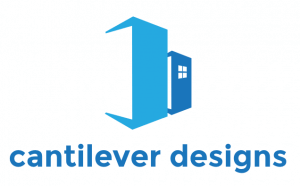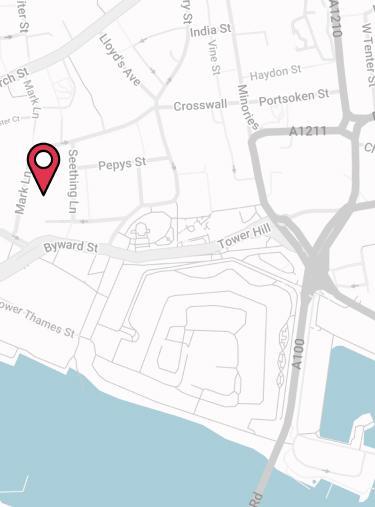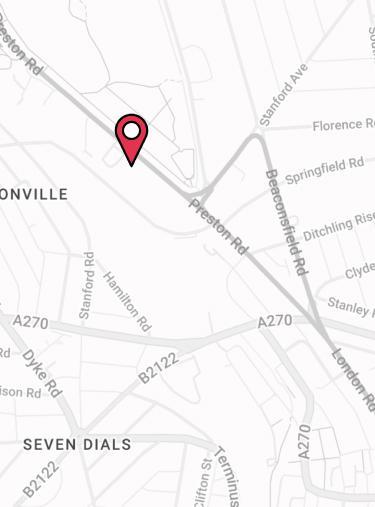
Why Take Out Shareholder Protection Insurance?
Shareholder Protection Insurance provides you with the funds to purchase the shares of an absent shareholder. If a shareholder dies or becomes critically ill, the policy pays out to buy their shares.
This is to ensure that the business can continue on. It also offers the shareholder and their family support by allowing them to monetise their shares.
To explore in more depth the benefits of Shareholder Insurance, we have constructed a scenario below. Here, the shareholder of a hypothetical design company, Cantilever Designs, has fallen critically ill.
We examine what would happen with and without Shareholder Protection in such a scenario.

Protecting Cantilever Designs
Architect Thomas Reed-Wells launched Cantilever almost 15 years ago. Over the years, it has grown steadily and today employs 14 people.
3 years ago, Thomas offered his two longest-serving staff members, Emma Hindley and Josh Coombes, the chance to buy a share of the company.
At the end of the last tax year, Cantilever’s accountants and advisers valued the business at £1.2 million. Thomas held 60% of the equity, Emma owned 25% and Josh owned 15%.
Last month, at the age of 54, Thomas develops cancer and now needs to leave the company.
Choosing Shareholder Protection Insurance
When Thomas brought in two new shareholders he asked his solicitor to amend the company’s articles of association. He also introduced a Business Will covering each of the new shareholders.
As part of the process, the company was accurately valued at £1.2 million and the company shares were valued.
Each of the three shareholders then signed a Cross Option Agreement. This is a document that lays out what should happen to the shares of an individual should they pass away.
Each shareholder also had a single-option agreement in place. This offers them the opportunity to review their situation if their circumstances changed due to ill health.
Since then, the company has paid the premiums to provide life and Critical Illness term cover for the three shareholders. This means that, in the event that one or more is unable to continue working, the remaining shareholders will have sufficient cash to purchase their former colleague’s shares.
Equalising Shareholder Protection Premiums
In this case, Cantilever’s adviser equalised premiums from the outset. Now the total premium cost is apportioned more fairly between Cantilever’s three shareholders.
This is important as otherwise Thomas stood to pay more than 18 times as much in premiums than Emma. Thomas pays more for Shareholder Protection due to the fact that he’s older than Emma and has a larger shareholding.
Why Do We Need Premium Equalisation?
The principle behind premium equalisation is that each individual pays a ‘commercial’ amount relative to the benefit they’re likely to receive. Failure to equalise premiums risks a steep Inheritance Tax (IHT) bill.
The risk is that HMRC judges an arrangement not to be commercial. If this happens, those individuals paying more than their ‘fair share’ of the premiums will be seen as making ‘gifts’ and taxed appropriately.
Unintended IHT bills are more painful still in the event of a claim. They can jeopardise the effectiveness of the business trust. Moreover, it may potentially leave too little in the pot to fund the intended share purchase.
Should the Worst Happen: A Critical Diagnosis…
When Thomas receives his cancer diagnosis, he exercises his single-option agreement and leaves the business. The company’s Shareholder Insurance pays out £720,000 to the business trust.
Thanks to the agreement, they can now purchase Thomas’ shares in Cantilever and continue running the business.
The Risks of Ignoring Shareholder Protection
With no Business Will or Shareholder Insurance, the news that Thomas needs to leave the business hits Cantilever hard.
There’s an immediate and unmanageable increase in Emma and Josh’s workload. Moreover, both Emma and Josh need to spend a great deal of time reassuring clients that the company can continue.
Unfortunately, behind the scenes, the day-to-day running of Cantilever is seriously hindered. With Thomas’ signature still necessary on key contracts, it becomes tricky for Emma and Josh to run the firm.
Business Leaders Caught Unprepared
As it stands, Thomas is seriously ill and unable to play a part in the business. Should he die, his shares in Cantilever will pass to his wife, Victoria. Victoria works in the fashion industry and has neither the capacity nor the desire to take on Thomas’ role in Cantilever.
When a shareholder dies, their shares usually go straight to their beneficiaries, regardless of whether they can contribute to the company. That leaves the remaining shareholders with few options except buying back these shares. Without Shareholder Protection, this may have to be from company revenue.
Holding Difficult Conversations
Emma and Josh need to discuss potential solutions Thomas, as well as the company’s solicitor and Thomas’ wife, Victoria.
During these discussions Victoria makes it clear that in the event of Thomas’ death, she would like a lump sum payment for her shares in Cantilever. She has no interest in receiving a controlling share of a business she cannot run. As such, she therefore may sell the shares elsewhere if Emma and Josh can’t raise the capital.
Without Shareholder Insurance, the two minority shareholders struggle to find the necessary funds to purchase Victoria’s shares. This is not least because banks are unwilling to lend more than £700,000 to a company that has just lost its majority shareholder.
While there is still more than £100,000 in the company’s bank account, this will be subject to significant tax if Emma and Josh withdraw any of it after Thomas dies.
No Shareholder Protection Leads to an Uncertain Future
After a period of fire fighting at Cantilever, Thomas passes away. Victoria puts his shares up for sale. However, it becomes clear that no suitable investor can be found for the business while it’s in such a diminished capacity.
Emma and Josh are ultimately forced to tell their employees that they need to wind up Cantilever. While they’re free to form a new partnership, they have both incurred substantial financial and intellectual property losses at Cantilever and may not be able to continue on the same basis.
Need Help? Get Shareholder Protection Advice…
Business owners that have shareholders who own sizeable shares of their company shouldn’t ignore the potential issues.
With Shareholder Protection Insurance, you can protect your business, your shareholders and your shareholders’ families.
Why Speak to Us?
You give so much to your business. That’s why you deserve first class service when it comes protecting it. Here’s why you should talk to us:
- No fee for our service
- Award-winning 🏆 independent insurance advisers, working with leading UK insurers
- You’ll speak to a dedicated specialist from start to finish
- 4100 and growing independent client reviews rating us at 4.92 / 5
- Claims support when you need it most
- Authorised and regulated by the Financial Conduct Authority. Find us on the financial services register.
Contact Us
125-135 Preston Road
Brighton
BN1 6AF
Cookies
Drewberry™ uses cookies to offer you the best experience online. By continuing to use our website you agree to the use of cookies including for ad personalization.
If you would like to know more about cookies and how to manage them please view our privacy & cookie policy.







